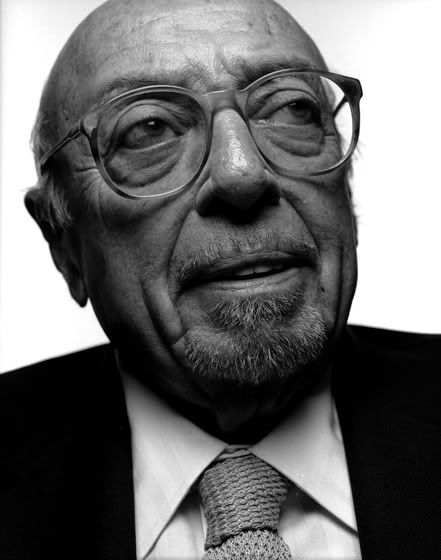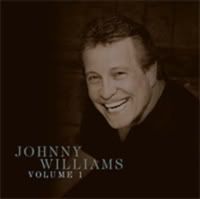"Happy holidays and a Happy New Year! We hope you have enjoyed our program of westerns this afternoon. Now its time for our main feature of the evening. With apologies to the original rapper and Apollo MC, King Coleman, the Apollo Theater presents Barefootin'! "
 "KING COLEMAN": "Thank you! Thank you! It's a joy to be here! If you don't dig it, don't knock it! Somebody else might wanna rock it! ‘Tis the season to be jolly, when Poison Ivy meets Buddy Holly. So find a seat that suits you fine, and enjoy a strangely soulful pantomime. Our story tonight is a real bestseller, about Cinderella and her fella. Though if she leaves that ball without a soul, man, look no further than this ole’ King Coleman! Now if things get crazy, holler out and tell her, let’s hear the tale of Cinderella!...
"KING COLEMAN": "Thank you! Thank you! It's a joy to be here! If you don't dig it, don't knock it! Somebody else might wanna rock it! ‘Tis the season to be jolly, when Poison Ivy meets Buddy Holly. So find a seat that suits you fine, and enjoy a strangely soulful pantomime. Our story tonight is a real bestseller, about Cinderella and her fella. Though if she leaves that ball without a soul, man, look no further than this ole’ King Coleman! Now if things get crazy, holler out and tell her, let’s hear the tale of Cinderella!... We begin our story here, in a dark and tragic room. Who’s this, about to dust my broom? Now, keep it clean, fellas – this is our future princess, Cinderella! You mind your mouth, she has some moves in her! With that broom she's her own Executioner!
We begin our story here, in a dark and tragic room. Who’s this, about to dust my broom? Now, keep it clean, fellas – this is our future princess, Cinderella! You mind your mouth, she has some moves in her! With that broom she's her own Executioner!She is clothed in rags, smudged in dirt and grime, she cleans the stage floor in double time, with a tear in her eye, and a weary sigh."
CINDERS: "I've been working on this stage for an age, earning less than a maid. All my life I've been shucked and shirked. A Fair Day's Pay For A Fair Day's Work!"
KING COLEMAN: "Now, you know me, I'm a real gent - but that don' t go likewise for the management! This hard life for Cinders, it takes me back - to Tennessee, to a cropper’s shack. Nutbush is the name they give it, and with it Cinders had reached her limit!”
Ike & Tina Turner – Nutbush City Limits (1973)
“Yeah, that’s right people! There's songs about this, and songs about that -- There's songs about people, big and fat!
In Kansas they have rainbows to take you far away; in Tennessee you have to deal with it, and live from day to day. This ain’t no fairytale, with ruby slippers, dogs and twisters! Aw hell, here they are, those put-you-down sisters!"
SISTERS: “Where you be at, baby sister? Scrubbing at floors? You gonna get blisters! Prince Charming just gave us a call, he says tonight we’re gonna have a ball. So you gonna help us, make us nice and fair, first of all, straighten out our hair! We don’t want to give him a fright, so make us out to be just like Snow White!”
KING COLEMAN: "So off they go, full of jubilation, while Cinders attends to her station."
KING COLEMAN: "Now, you know me, I'm a real gent - but that don' t go likewise for the management! This hard life for Cinders, it takes me back - to Tennessee, to a cropper’s shack. Nutbush is the name they give it, and with it Cinders had reached her limit!”
Ike & Tina Turner – Nutbush City Limits (1973)
“Yeah, that’s right people! There's songs about this, and songs about that -- There's songs about people, big and fat!
In Kansas they have rainbows to take you far away; in Tennessee you have to deal with it, and live from day to day. This ain’t no fairytale, with ruby slippers, dogs and twisters! Aw hell, here they are, those put-you-down sisters!"
SISTERS: “Where you be at, baby sister? Scrubbing at floors? You gonna get blisters! Prince Charming just gave us a call, he says tonight we’re gonna have a ball. So you gonna help us, make us nice and fair, first of all, straighten out our hair! We don’t want to give him a fright, so make us out to be just like Snow White!”
KING COLEMAN: "So off they go, full of jubilation, while Cinders attends to her station."
CINDERS: "You know, I could do without that strife. Tomorrow is a new dawn, a new day, and a new life."
Nina Simone - Feeling Good
Nina Simone - Feeling Good
KING COLEMAN: “You know, Cinders ain’t got nothing to fear, ‘cause this is the time when I appear! There’s plenty a trick, Cinders, that I know – you shall go to the Apollo!”
CINDERS: "But my sisters, they all straight and fair; and I haven’t got a stitch to wear!"
KING COLEMAN: "I know what you’re really after, and I’ll give it like I was a Fairy Godfather! Come here, momma, quick, and I’ll bring you my magic stick!"
CINDERS: "But my sisters, they all straight and fair; and I haven’t got a stitch to wear!"
KING COLEMAN: "I know what you’re really after, and I’ll give it like I was a Fairy Godfather! Come here, momma, quick, and I’ll bring you my magic stick!"
CINDERS: "Ole King Coleman, now you behave! I don’t need your magic stave! My Prince awaits me at the ball – I just need a dress and shoes, is all!"
KING COLEMAN: "Like an alley cat chasing a rat across a railroad track ... stay tuned, I will be right back!... now, here I am back again, before you knew I was gone – wear these high heeled sneakers and put that red dress on!"
Ike & Tina Turner – Hotpants/High Heeled Sneakers
"So you gonna have a ball, but remember this one thing right – the magic will end at ‘round midnight!”
"Put your left foot on the floor -- get out the front door. Rush, rush, rush -- get on that bus! If you wasn't on your heels -- you could be driving a brand-new automobile!"
The Kings Of Rhythm – Rocket ‘88
"So here we are at the Apollo, ready to enjoy the show! I’ll MC this thing, of course, and rock this pantomime by force! Cinderella is dressed to look alarming – and catches the eye of her Prince Charming! But by others she is also spied, by fine Jim Dandini at the Prince’s side!"
JIM DANDINI: “Be wild and free, but save the last dance for me!”
The Drifters – Save The Last Dance For Me
 KING COLEMAN: "There she stands, in fine shoes and dress, yeah, and everyone gives cries of ‘Bless her!’”
KING COLEMAN: "There she stands, in fine shoes and dress, yeah, and everyone gives cries of ‘Bless her!’”Curtis Mayfield – Miss Black America
KING COLEMAN: "She has eclipsed, I should mention, her snow-white sisters, by hair extension!
Now, Everybody get on your feet. You make me nervous when you're in your seat. Take off your shoes and stamp your feet, and do the dance that can’t be beat!"
Robert Parker – Barefootin’
"The Prince has crossed the stage, after checking she is of legal age! Jim Dandy, looking quite dismayed, decides to end his Prince's masquerade. As Cinders begins to look closely, he is not what he appeared to be!"
PRINCE APOLLO: "Why look at you, I must confess, you are the image of a fine princess! Fine and dainty from head to your toes, you remind me of a fragrant rose. You are surely Harlem’s finest flower - I shall pluck you in the midnight hour!"
Wilson Pickett – In The Midnight Hour
CINDERS: "Can you keep up ‘till the midnight hour? I’ll take a rain check – you take a shower! Who’d have thought this Prince would be a creep – all your talk puts me to sleep! You got to be at least twice my age - I ought to sweep you right off 'a this stage!""
Now, Everybody get on your feet. You make me nervous when you're in your seat. Take off your shoes and stamp your feet, and do the dance that can’t be beat!"
Robert Parker – Barefootin’
"The Prince has crossed the stage, after checking she is of legal age! Jim Dandy, looking quite dismayed, decides to end his Prince's masquerade. As Cinders begins to look closely, he is not what he appeared to be!"
PRINCE APOLLO: "Why look at you, I must confess, you are the image of a fine princess! Fine and dainty from head to your toes, you remind me of a fragrant rose. You are surely Harlem’s finest flower - I shall pluck you in the midnight hour!"
Wilson Pickett – In The Midnight Hour
CINDERS: "Can you keep up ‘till the midnight hour? I’ll take a rain check – you take a shower! Who’d have thought this Prince would be a creep – all your talk puts me to sleep! You got to be at least twice my age - I ought to sweep you right off 'a this stage!""
PRINCE APOLLO: "Come on, honey, don't be sore - what you think I pay you for?"
CINDERS: "Do you know why I really came here? To get what's owed to me fair and square. I came here tonight to sing and dance, but now that I have got the chance, although my clothes are rearranged, I see that nothing's really changed! You've got the money - we all doled it out - so treat me fair or I'll walk out!"
CINDERS: "All your patter makes my toes curl – the Prince Apollo is just the Duke of Earl. Amidst all this finery and bustle, all you got to show me is a Harlem shuffle! You really think that I would choose you? - I want to know is, who's behind you?"
KING COLEMAN: "Now while you all enjoy the pantomime, our Cinderella forgot about the time! Cinderella, you take flight! The clock strikes twelve, its ‘round midnight!"
Miles Davis & John Coltrane – ‘Round Midnight
"Look at that! I ain't gotta say nothing! Cinders is off and rushing! Put your flappers on the floor -- head out that front door!
In all her rushing out the door, she forgot her shoe upon the floor. Sparkling, shimmering, shining bright, Jim Dandy picks up the slipper light. For while he watched the prince preen and pout, he realised Cinders is something to shout about!"
The Rivileers – Who Is The Girl? (1954)
"Now the Prince Apollo has awoken, and these are the words that he has spoken:"
PRINCE APOLLO: "I woke up this morning/I was all alone/Because I discovered my woman had packed up and gone."
KING COLEMAN: "Feeling no pain, he scratches his head - and pushes the two sisters out of bed! For a moment, he thinks to linger – then spies a ring upon each finger! He hollers out to hail a carriage, to make escape from a sudden marriage!
Jim Dandy know what he has to do, he really should report the shoe. But rather than play second mate, he hides the shoe and changes fate! Leaving the Prince in the lurch, Jim Dandy goes to start the search! Leaving the Prince in the arms of others, Jim Dandy searches for his new lover! True love ain’t just for the boss; he deserves the double-cross! The Prince realises he has been cussed – who will find Cinderella first?"
Sam & Dave – Hold On, I’m Comin’!
"The sisters have made their own way home, and find Cinderella all alone. They see Cinder's dress, now all in tatters, and decide to scorn instead of flatter:
SISTERS: "They said the ball is over
And love is here to stay
You kitchen-working women
Sure did have your way
But it’s all over baby
Now you girls have got to pay"
KING COLEMAN: "Nothing has changed, no dream came true?
Hey wait – here’s Jim Dandy to the rescue!
KING COLEMAN: "Now while you all enjoy the pantomime, our Cinderella forgot about the time! Cinderella, you take flight! The clock strikes twelve, its ‘round midnight!"
Miles Davis & John Coltrane – ‘Round Midnight
"Look at that! I ain't gotta say nothing! Cinders is off and rushing! Put your flappers on the floor -- head out that front door!
In all her rushing out the door, she forgot her shoe upon the floor. Sparkling, shimmering, shining bright, Jim Dandy picks up the slipper light. For while he watched the prince preen and pout, he realised Cinders is something to shout about!"
The Rivileers – Who Is The Girl? (1954)
"Now the Prince Apollo has awoken, and these are the words that he has spoken:"
PRINCE APOLLO: "I woke up this morning/I was all alone/Because I discovered my woman had packed up and gone."
KING COLEMAN: "Feeling no pain, he scratches his head - and pushes the two sisters out of bed! For a moment, he thinks to linger – then spies a ring upon each finger! He hollers out to hail a carriage, to make escape from a sudden marriage!
Jim Dandy know what he has to do, he really should report the shoe. But rather than play second mate, he hides the shoe and changes fate! Leaving the Prince in the lurch, Jim Dandy goes to start the search! Leaving the Prince in the arms of others, Jim Dandy searches for his new lover! True love ain’t just for the boss; he deserves the double-cross! The Prince realises he has been cussed – who will find Cinderella first?"
Sam & Dave – Hold On, I’m Comin’!
"The sisters have made their own way home, and find Cinderella all alone. They see Cinder's dress, now all in tatters, and decide to scorn instead of flatter:
SISTERS: "They said the ball is over
And love is here to stay
You kitchen-working women
Sure did have your way
But it’s all over baby
Now you girls have got to pay"
KING COLEMAN: "Nothing has changed, no dream came true?
Hey wait – here’s Jim Dandy to the rescue!
Getting them both out the way, Jim steps right in to save the day!"
JIM DANDY: "Sisters, listen - if you show off a rock, you have the Prince in a marriage lock! If he wants two for the price of one, make him pay for what he's done. Ashes to ashes, dust to dust -- Hit 'em in the head with a cornbread crust!"
KING COLEMAN: Go Jim Dandy! You know what to do!
Go Cinders! Try on that shoe!"
LaVern Baker – Jim Dandy
JIM DANDY: “Cinderella, I’ll be your fortune teller – forget the Prince, I’m your fella! Muscle ain’t your hustle, your mind is your thing. Get up off of that floor, you can do anything. From this life you're freed, and for me, you're all that I need!"
KING COLEMAN: Go Jim Dandy! You know what to do!
Go Cinders! Try on that shoe!"
LaVern Baker – Jim Dandy
JIM DANDY: “Cinderella, I’ll be your fortune teller – forget the Prince, I’m your fella! Muscle ain’t your hustle, your mind is your thing. Get up off of that floor, you can do anything. From this life you're freed, and for me, you're all that I need!"
Marvin Gaye & Tammi Terrell – You're All I Need To Get By
KING COLEMAN: "Everyone ends up together, Jim Dandy with his Cinderella. Everyone makes it, at a pinch – the sisters team up against the Prince. Now it isn't quite so funny, his money's spent on alimony. The moral of this story, as you already knew, to get what you want, to thine own self be true!"
HAPPY NEW YEAR TO ALL!
Bad puns and rhymes my own fault, of course - don't blame the real King Coleman! With some better ideas and rhymes from interviews with King Coleman, Shipyard Woman by Jim Wynn, and Weeping And Crying by King Coleman & The Griffin Brothers Orchestra. Apologies also for some missing songs at present - i've gone on holiday without them! They'll be up on Jan 2nd when I get back home! Also, read this interesting feature about the upcoming Disney cartoon "The Princess And The Frog" by Alan Jenkins at Tompaine.com, a film which will star their first black heroine. How will she be portrayed?









































